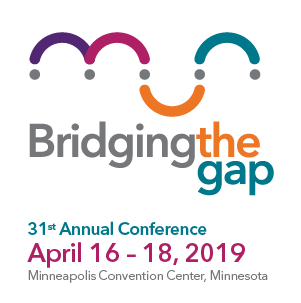Ending Unconscious Bias: Using Neuroscience to Attain Leadership Buy-in and Engagement to Advance Inclusion
90-minute Workshops
Day 2
Session Code: S2-IWhen: April 17, 2019
Location/Room: 102 ABC
Level: Intermediate
Track: Healthcare
Presenters: Shannon Murphy, BrainSkills@Work | Tiffany Capeles, CHRISTUS Health
Description
For an industry whose success is intricately tied to how well they are able to connect and meet the needs of their community, it is imperative to have people at the senior-executive level and on governance boards that not only look like those they serve, but also understand the neighborhoods, cultural challenges and the needs of the populations they are serving. Unconscious bias in health care has tremendous impact both externally on the delivery of patient care and internally on the organizational culture, engagement and performance.
CHRISTUS Health has created a solid track record of identifying and working to eliminate disparities in health care delivery to their highly diverse patients. The next challenge was to address unconscious bias in the internal work culture, to increase awareness of bias and develop skills to manage bias and foster high levels of inclusion, performance and engagement. This work needed to begin with engagement and buy-in of the leaders, and an approach was needed that would increase recognition of unconscious bias without the leaders becoming defensive.
This session will delve into a unique approach to successfully gain buy-in from the leaders through the door of neuroscience. You will learn how the CHRISTUS Health’s Health Equity, Diversity and Inclusion (HEDI) team, in partnership with BrainSkills@Work, increased buy-in and engagement with both the HEDI Council which is comprised of leaders across their health care system, both in the U.S. and in Mexico, Columbia and Chile, and the executive council. In using a neuroscience approach and brain-based strategies and tools, CHRISTUS Health bridged these critical gaps to successfully engage the leaders and build D&I commitment.
This session will also highlight a key tool used with the leaders, the BrainStates Self-Awareness Profile, including how it was used, an overview of the results and how it increased awareness and engagement. The group results showed some unique strengths that the leaders can consciously leverage to be more consistently inclusive in their behaviors, decisions and choices. Additionally, the profile results showed some unique challenges to address that impact self-awareness and provided the basis for additional skill-building training with practical brain-based strategies and tools to increase their effectiveness.
Learning Outcomes
- Learn how to effectively engage top leaders through the door of neuroscience
- Gain insight into the BrainStates Self-Awareness Profile to increase self-awareness
- Learn how to leverage brain-based skills and strategies to manage unconscious bias
Handouts
Ending Unconscious Bias
Sponsor



